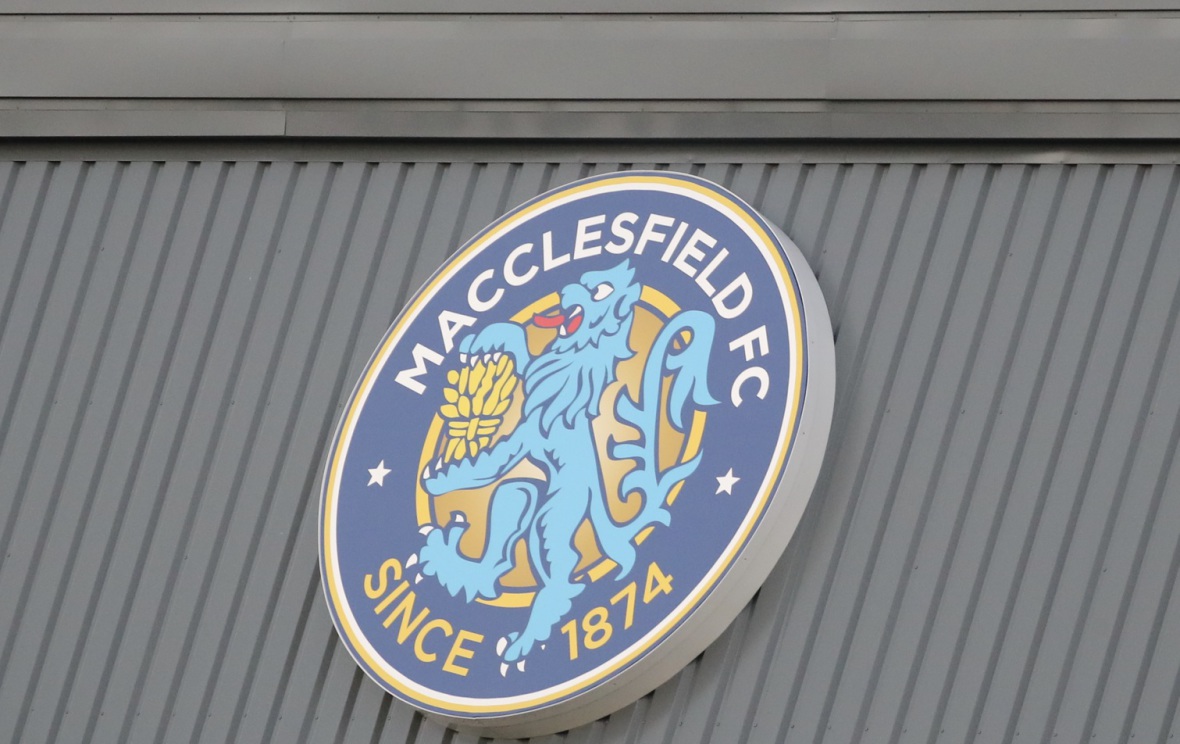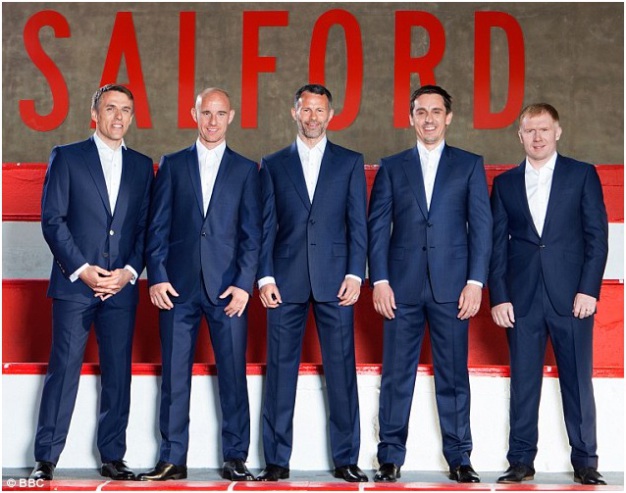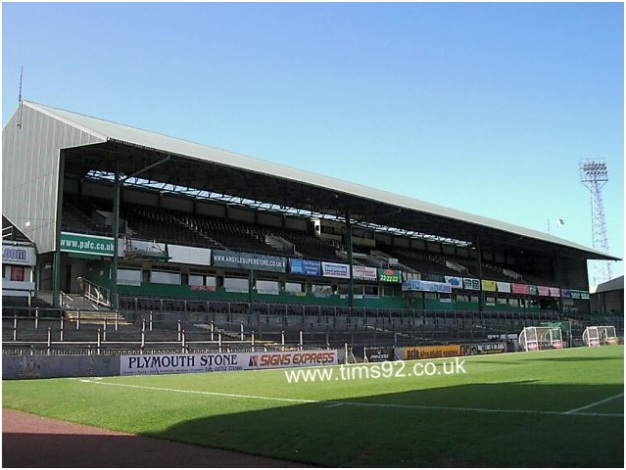
Recent Articles
23rd July 2021
Tracey Crouch's Letter To Oliver Dowden
The Rt Hon Oliver Dowden CBE MP Secretary of State for Digital, Culture, Media and Sport
Department for Digital, Culture Media & Sport
100 Parliament Street
London SW1A 2BQ
22 July 2021
Dear Oliver,
I am writing to provide you with an update on the work of the Independent Fan Led Review of Football Governance. This letter sets out the preliminary findings and
recommendations but there is much work still to do. In particular, I wish to inform you of the conclusion I have reached that in order to protect the future of key aspects of our national game a new
Independent Regulator for English Football (‘IREF’) is needed.
The Expert Panel has heard over 100 hours of oral evidence from fan groups, leagues, the FA, clubs at every level of the pyramid, representatives of players and
managers, those involved with and supporters of the women’s game, academics, German supporter groups and many more. We have received over 70 documents of written evidence and conducted a survey which
closes today, but which has already had 16,000 responses. As Chair I have also taken soundings from numerous people who have been involved with the game both past and present. I am confident that
everyone with an interest in English football has had the chance to contribute to the Review.
It has been an incredible experience to hear from so many different football stakeholders. But it is the voice of fans that has been the loudest and clearest. Although I have been involved with
football all my life, as have many members of the Panel, it was truly eye opening and educational to hear the experience of fans first-hand. I have huge respect for their passion, talent and
commitment to their clubs. It is often said that football without fans is nothing. It is no exaggeration to say that a number of clubs would not exist today had it not been for the activism of their
fans in driving positive change. Its fans are a strength of our national game that should be both cherished and nurtured.
If it was not already sufficiently clear before the start of the Review the evidence has been clear that football clubs are not ordinary businesses. They play a critical
social, civic and cultural role in their local communities. They need to be protected - sometimes from their owners who are, after all, simply the current custodians of a community asset. Equally,
although clubs are not ordinary businesses, they should not be immune from the ordinary financial controls, checks, balances and behaviours that are good practice in any multi-million-pound company
but too often can be absent across the game.
This letter aims to cover the major issues identified but it is not seeking to be exhaustive on all relevant issues. The Review will continue to consider issues, and
undertake further substantive work over the coming months, before I issue my final recommendations in the Autumn.
Introduction
As you know, the Review was launched, and the terms of reference announced in April 2021. Although the Review was a manifesto pledge driven by concerns about the financial vulnerability of football clubs in light of the collapse of Bury Football Club and others, it was the threat to English football posed by the failed attempt to launch a European Super League that triggered its formal start.
English football has many strengths. The Premier League is rightly seen as one of the UK’s most successful exports and attracts some of the best talent in the world. The
Championship is the biggest ‘second division’ in Europe. Clubs across the football pyramid play important roles in their local communities and the English football pyramid itself is admired
throughout the world. The FA has invested in world leading facilities for the England teams enabling them to drive forward the positive development of players and success on the pitch. It has also
built up the women’s game, worked hard to improve diversity including appointing its first female Chair, cooperated closely with Sport England to extend good governance practices to County FAs and
continued to invest resources in grassroots football. There is much to celebrate and be proud of.
The Need for Reform
However, for all the positives the need for this Review has become more evident and urgent through the oral and written submissions we have received. Key aspects of our
national game are at genuine risk. The short-lived threat of the European Super League jeopardised the future of the English football pyramid. While that threat has receded - for now - the dangers
facing many clubs across the country are very real with their futures precarious and dependent in most cases on the willingness and continuing ability of owners to fund significant losses. When this
is multiplied by poor financial controls, reckless behaviour by owners and an unwillingness of the authorities to intervene the results are clear - as can be seen from the recent fates of Bury and
Macclesfield. Historic and much-loved clubs going under. Loyal fans bereft and communities decimated.
Finance
These risks were present at the top level of the game before the effects of the pandemic. According to the Deloitte Review of Football Finance 2020, in season 18/19 9
Premier League clubs made pre-tax losses, and 8 clubs operated with a wage to revenue ratio at or over the level (70%) considered dangerous, with 3 over 80% - the first time more than one club has
operated over 80%.
The situation is even worse below Premier League level. In the Championship in the same pre-Covid season, only two Championship clubs made both operating and pre-tax
profits, average wage to turnover was 107% and average operating losses £16m annually. Leagues 1 and 2 made pre-tax losses of £22m and £20m respectively.
Operating at such a level of consistent losses is clearly unsustainable in the long term. It is sobering to consider that these numbers are the end result of a long
period in which football had been growing revenues to record or near record levels. The threat of possible future reductions in income expected as the broadcast market diversifies indicates that,
without reform, English football could face an existential crisis in years to come unless pre-emptive action is taken now.
Regulation and governance
This situation has arisen under the current regulatory framework, which should in itself be an indicator that the framework is not working. It is absolutely evident from
our sessions that the football authorities have lost the trust and confidence of the fans as have, in a number of cases, clubs themselves. We have also not heard from football authorities a single,
unified response to the problems of English football. It remains clear that there is currently no single body that is responsible for stewarding the game and that different organisations still have
different views about what should be done. This continuing lack of coordination significantly reduces my confidence in the football authorities being able to successfully address the problems
identified.
The football authorities have also had multiple opportunities to reform - the 2011 DCMS Select Committee highlighted many of the same problems that have been clear in
evidence to the panel and stated that if football did not change legislation would be needed. I and my predecessors as Sports Minister often stood at the Despatch Box and claimed that it was the
“last chance saloon” for football to reform itself. It is with some sadness that I note they didn’t heed those warnings and that therefore it is time now for external assistance.
It is also clear that the current governance structures in clubs and the football authorities have not, despite many well-intentioned initiatives, delivered sufficiently
on an equality, diversity and inclusion agenda. Significant contributions to the Panel indicate that football is an immature landscape lacking the basic data for improvement across a range of
fundamental issues.
Throughout our consideration of the problems faced by English football its greatest strength - the supporters - has shone through. As was said many times to the Panel in
evidence, owners as temporary custodians of a community asset come and go but fans are forever. However, fans have been consistently underrepresented in football governance, something which appears
to have led - in part - to the European Super League proposals. I intend to work over the summer to address this and ensure fan engagement and influence is an important part of the game’s governance
at all levels in the future.
The passion and commitment to clubs from fans through good times and bad is remarkable, including the many times fans have saved their club from extinction. Over the
course of the summer, the Panel and I will work to try to make sure that they never need to again.
Establishing an Independent Regulator
I have stated publicly that there is a strong case for a new independent regulator, and I have heard nothing in evidence that has dissuaded me from this view. I believe that IREF should be established to address issues that are most relevant to the risks to the game and already at least partially a matter of English law - particularly financial regulation, corporate governance and ownership. The related requirements are likely to include cost controls, real time financial monitoring, minimum governance requirements (including a requirement for independent non-executive directors on club boards) and revised separate tests for owners and directors of clubs on an initial and ongoing basis.
However, I do not believe that IREF should cover ‘football issues’ such as the running of league competitions, video technology, the national game, Wembley Stadium, the
delivery of a grassroots strategy and other such matters which should remain with the existing bodies. It may also be that at some point in the future a substantially reformed FA could absorb the
functions of IREF, though evidence received indicates this possibility is some way off.
It is my intention to work with the Panel over the summer to consider, in depth, the role that such a regulator, established by legislation, might play and its operating
model. In this, I will look to learn lessons from successful regulators in other industries to ensure workable and effective regulation that ensures clubs are well run sustainably in a way that
promotes competition without reckless risk taking. This will include consideration of the detail of a number of areas such as independent appointments to the regulator, its primary duties, funding
and political independence, as well as investigatory and enforcement powers.
I will also consider the possibility of such a regulator operating through a formal licensing system, which might allow it to impose conditions relating to other areas
such as equality, diversity and inclusion. I also expect that a licensing model, in conjunction with better fan engagement and veto powers, will allow the regulator to protect existing competitions
against any future European Super League type proposals.
Protecting Heritage Assets
We have seen strong evidence that existing protections of key club heritage items of great cultural and emotional importance to fans is not sufficient. The most pressing
of these has been the many clubs who appear to have lost the rights to their home grounds, but much evidence was also received of concerns relating to items such as club badges, location, colours and
competitions. I therefore intend to develop proposals with the Panel to offer greater protection for these important assets through a ‘golden share’ for fans, giving veto powers over reserved items,
to be held by a democratic legally constituted fan group. I will work over the summer to consider the appropriate matters to be covered by this golden share veto and alongside this we will develop
proposals for additional protections such as enhancing the existing legal provision for ‘Assets of Community Value’.
The Panel has also received evidence that some fan groups would like the ability to buy shares in their club, as well as suggestions for greater opportunities for
supporter groups to be able to buy their clubs as part of formal insolvency processes. These are highly technical areas of company and insolvency law, and I will consider these suggestions in more
detail in the months to come.
Deepening Fan Engagement and Transparency
The Panel has also considered evidence regarding the effectiveness of existing requirements relating to fan engagement and transparency, including the impact of the structured dialogue recommendations advanced by the Expert Working Group. It is clear from this evidence that while there has been progress with some clubs demonstrating excellent fan engagement and transparency, too many clubs have not made sufficient, meaningful progress. This lack of transparency also extends to football authorities. I therefore intend to explore measures to mandate greater fan engagement, and in particular measures that will seek to provide for fan consultation on key issues.
To date, there has been no consensus in the evidence presented to the Review on the correct vehicle for such fan engagement, with suggestions such as fan appointed
directors not universally favoured by supporter groups. Indeed, evidence was received from existing fan elected directors of some significant difficulties that they face.
The final results of the Review’s fan survey will be of great assistance in considering an approach to fan engagement. I also intend to consider further some of the
examples of existing ‘supporter
heritage committees’ that evidence suggests have worked well at some clubs and which other clubs are in the process of introducing.
Navigating Financial Gaps
Good governance must be allied to genuine financial reform. The Review will make recommendations on more effective cost controls and financial management across the pyramid. One of the most difficult issues in regard to Club financing and sustainability is the sharing of revenue and how best to ensure financial structures within and between leagues are constructed to enable clubs to successfully navigate the financial gaps between divisions which naturally arise as a result of market forces.
I believe that part of the solution is to encourage clubs, particularly at lower levels of the football pyramid, to maximise the revenue generation opportunities from
their existing assets. In this, I am minded to recommend the removal of barriers to revenue generation in lower divisions, such as allowing clubs to operate all weather pitches in League
2.
So called ‘parachute payments’ are seen as both a symptom and cause of some of the difficulties in ensuring club financial stability as clubs move, or aspire to move, or
are threatened by a move, between divisions. I am in no doubt they distort competition and drive unsustainable financial activity but recognise that they do also assist the ambition of promoted clubs
and stability of relegated clubs. Accordingly, I will undertake further work over the summer on revenue flows within the football pyramid with a view to a conclusive recommendation in the final
report.
In the meantime, I strongly urge the Premier League and the English Football League to reconsider their approaches to finance flows between divisions and within their
competitions work together to seek a viable achievable solution.
Reforming Football Authorities’ Governance
The Panel has received significant evidence of a need for greater independence in the decision-making structures of the existing football authorities - the Premier League, English Football League, The FA and National League.
I believe that there is a strong case for reform across all of these bodies and am inclined to direct them to develop proposals. In the case of the FA, I welcome initial
proposals from the FA Chief Executive Mark Bullingham on FA Board reform which he worked hard to secure and present to the Panel, and am inclined to recommend that at least 50% of the FA Board are
genuinely independent non-executive directors and that significant reform of the FA Council is undertaken. I believe that this is a principle that should extend across all funded National Governing
Bodies in sport, established within the Sports Governance Code.
The removal of club directors from the Board of the EFL (as recommended in its own earlier governance review) and the National League with both appointing new
independent directors would also be a welcome reform. With regard to the latter, although this letter represents my interim findings, I would recommend urgent reform of the National League Board and
voting structures as it is clear that a significant part of the league has no confidence in the current set up.
I am also aware of the Football Supporters’ Association survey of National League supporters in which a strong majority supported the National League top division being
absorbed into the EFL structure. I recommend that the EFL and National League enter into meaningful discussions to consider this further.
I am aware that there are existing working practice agreements in place between the English football authorities and politely suggest that my recommendations should be considered as superseding these
existing agreements.
investing in Football
The case for greater investment in grassroots football, amateur football, and women’s football has been made strongly in evidence to the Panel. I intend to explore further over the summer how parts of existing finance flows in football to areas such as new or existing transfer and/or agent levies might be more usefully diverted to grow football in the country at the grassroots, amateur, and in the women’s game. We must build on the huge success and positivity engendered by the England team at this year’s European Championship to increase participation in the national game, and to secure its future. Money must be found from within the game to nurture our future stars, and to boost our national sport.
I also consider that the FA should have more flexibility in the use of the money that it generates than it is permitted under the current funding formula which requires
an equal split between the professional and amateur games. I strongly believe that this formula should be abolished, and the FA allowed to redistribute its surplus towards the grassroots, amateur and
women’s game as it sees fit.
Growing Women’s Football
The growth and popularity of women’s football in recent years is hugely encouraging. However, the Panel has heard much evidence that the sport is now at a critical juncture facing complex and difficult decisions regarding the best approach to take for future stability and growth at both elite and grassroots levels. I believe that improvements in corporate governance of clubs and football authorities under a new regulator will benefit the women’s game as much as the men’s game. As noted above, I also believe that there should be consideration of the money flowing into the women’s game and exploration of ways that funding can be increased.
However, it is more difficult to discern the right model for the future structure of women’s football and the evidence from those within the game has been varied. I
believe it is crucial to get these issues right before proceeding further, and we will be considering this further over the coming weeks. It is likely that I will recommend that the future of women’s
football receive its own dedicated review.
Protecting the Welfare of Young Players
The Panel heard compelling evidence that the football industry needs to take greater steps to protect the welfare of young players, and in particular the vast majority of young players who become part of football academies but do not go on to have professional careers. The Professional Footballers’ Association (PFA) gave evidence that their involvement with football has a significant impact on the mental health, social development and educational development of these young people. I therefore strongly recommend that the FA, Premier League, English Football League, National League and PFA urgently cooperate to develop a joined-up approach to player development and player care both inside and outside of football.
Contributing to the Gambling Review
Although not within the scope of the terms of reference of my Review, a number of supporter groups were very concerned about the high levels of gambling advertising in and around football, and the impact that this had on supporters, players, and also the game. I am aware a separate review of the Gambling Act is currently underway which is covering gambling advertising. I would recommend that the Gambling Review hears the concerns of football supporters on this issue, and that they have an opportunity to submit evidence to that review.
Conclusion
This is just the start. Thanks to the extensive engagement from the football community, building the foundations of this Review, I have been able to set out the
direction of travel towards the final recommendations. The Panel and I, supported by DCMS officials, will undertake further substantive work over the coming months to scrutinise, test and challenge
these initial findings and to give more detail in the Final Report in the autumn.
I believe this is the opportunity to address some of the very real challenges facing the English game while at the same time building on its many strengths to make it
stronger still. Stronger competition. Stronger protections, regulation and governance. Stronger fan involvement. Stronger controls allied to financial reform. A stronger national game for everyone
across the men’s pyramid, the women’s game and the grassroots.
I am sure that you would like to join me in thanking all those who have contributed to the Review so far, the Expert Panel for their valuable time and officials who have
assisted the work to date.
Yours sincerely
TRACEY CROUCH MP
ENGAGE! How clubs can win with football [...]
Adobe Acrobat document [2.0 MB]
Is This The New Face of Football?
7th June 2020
Face masks, testing, social distancing and the echo of empty stadiums. Many publications and media outlets have spent the past week morbidly claiming this as the new face of football. As Swindon Town’s financial issues were laid out at the High Court recently, the threat of administration looming, at our level, I could not help but feel that this is the new face of football. The sport we love is in trouble. Television deals will take care of the Football elite to the point where little damage will be caused, a blip perhaps, but those SKY and BT subscriptions will creep up and all will be right in their world. However, in the EFL, the argument over who goes up and who goes down may prove an insignificant footnote in the plight of lower league football.
Let me be clear, the Coronavirus lockdown is not the sole reason clubs in the EFL are in financial peril. It will be easy for Owners to claim so, but the current situation is purely the straw that broke the back of a weary camel. Poorly run, over budgeted, under resourced and barely solvent football clubs are not an anomaly, they are commonplace. The accounts for the 2017/2018 season highlighted that in League Two the average weekly loss for a club was £13,500. The average loss per club over the season a staggering £802,000. How many sectors in business would exist with those numbers? League Two sides receive an estimated £472,000 for competing, regardless of the position they finish within the league. Clubs also receive a £430,000 “solidarity payment” from the Premier League, the type of “solidarity” that allows a Premier League club to purchase a young talented Welsh player for a pittance of what they are actually worth for example. So before clubs start pencilling in the budget for a season, they have £900,000 guaranteed income to rely on. Yet, the average loss is still £802,000? Incredible.
Swindon Town’s situation was of little surprise. In their relegation from League One in 2016/2017 they were losing £34,000 a week, a deficit of £1.768 million over the year. Lee Power, an owner who is not universally liked in Wiltshire, has loaned the Club close to £6 Million in his tenure. I read one supporter mock the notion that Power was a “Sugar Daddy” owner, if throwing six million pounds at something and getting nothing in return does not qualify him for that then I am not sure what does. Power’s investment has kept the club afloat, just. By September 2019, football finance expert Kieron Maguire, devised that the club’s losses were at £11 Million and exceeded their assets. A grave situation it would seem. Fast forward to January 2020 and the “Ginger Pele” signs a lucrative deal to stay at the County Ground and ultimately secure promotion. The stupidity of it all blows my mind. It is like if Flybe had tried to resolve their financial issues by purchasing a Jumbo Jet.
Swindon Town are not alone, just the latest club off the rank. You do not need to look too far in League Two to find other red flags. Forest Green Rovers have established themselves as a competitive League Two side, yet the cost of getting the club to the Football League totalled £12 million worth of losses over a six year period. Clearly running a budget at over £2 million a season will help achieve success, but as a business model? If Dale Vince has spent this fortune building the Gloucestershire club, I dread to think what money is going into Salford. A legal loophole used by the Greater Manchester club prevents access to their wage budget through the published accounts, I wonder why they might want to keep that from public knowledge? As millions has been invested into that football club I present their average attendance for this season of 2,997 without further comment.
Newly promoted clubs are not the only guilty ones. In 2017 Colchester United published a loss of £3 Million. In 2018 they published a loss of £2.37 Million. The Essex club have now borrowed close to £25 Million from their parent company, that is a figure that feels worthy of a pause for thought. Northampton Town lost £42,000 a week in 2018, the monies they owe on borrowings are now £5.5 Million. With the knowledge that this is a club who received a £10.25 Million loan from the local council, seemingly “lost” a significant portion of it that resulted in a £3 Million public investigation into the club and it’s then owners, the fact they are still not run on budget is simply staggering. Cambridge United and Crewe Alexandra are other clubs who appear to struggle. Both have reported losses around £800,000 in the last two years of their accounts. I would like to think that if you lose close to a Million Pounds in one season then you make necessary cuts to avoid a repeat, not in football, it appears the “we go again” mentality reflects into the Boardroom.
Locally, Plymouth Argyle are a club not making money. The stadium is a magnificent venue, the redevelopment of the Mayflower Stand evolving Home Park to a level beyond the one the club plays at. However, that is a project funded by the benevolence of one man. Argyle lost £1.3 Million in their relegation season and will make further losses this season. In 2019 a portion of the clubs losses were converted into shares, a procedure that had already been carried out in 2016. Coupled with his purchase of the club from James Brent, Simon Hallett has now put as much as £11 Million into Plymouth Argyle football club in his two year involvement. When you look a short way up the M5 to Bristol Rovers, they are a club that owe £16 Million in loans to a parent company in Jersey. Madness everywhere.
The question posed to all football clubs should be a simple one. If the owner of your club cannot provide additional funding, is your business sustainable? If it is a No, you have a problem, and it is a No, in a LOT of cases. We live in a time of uncertainty, if, as anticipated, events of the past few months result in a difficult financial climate and owners have to stop investing and tighten their own outgoings, what happens to those expensive toys they play with?
So how do we govern football better? The EFL get a lot of blame, rightly so in many cases, but I do have a slight issue with some of the vitriol. I work in retail, if I run my business incorrectly and fail to budget accordingly, then it would not be the National Retail Association’s fault if I went bust, it would be my own. Where the EFL needs to step in is to make certain that clubs who run losses receive punishment and, perhaps more importantly, help to address their issues. Look at Cambridge and Crewe, if those £800,000 losses continue season after season where does it end? As fans we also have a duty and this can be the hard bit. We just want to watch a successful team, a love of football rarely includes a love for economics. When Swindon Town are not buying players and being relegated, yet the owner has pumped in £6 Million, that is a red flag. It appears that after criticism Power did not cut their budget to erode the losses, he budgeted to try and spend their way out of trouble. A mindset that clearly underlines that the loss of Bury and how it came about resonated in no way with other Football Clubs. Ultimately, for many Clubs to meet a budget they would have to significantly cut outgoings, this would feasibly lead to poor on field results and criticism from supporters, so, rather than face that, the running up of considerable losses continues. If Bury had played their Academy players for the 2017/21018 season then they may well have been relegated out of the Football League, however, those supporters may still have had a club to support and rebuild. Running losses to the point of no return is the way football has been heading for too long and perhaps the events of 2020 may save football from itself? Bury going out of business was sad, but did owners fight the EFL for rule changes? Few acted because it did not effect them. The Coronavirus lockdown effects everyone and perhaps that will bring about needed change. As an example, Cambridge United may be a club that are fearful of cutting costs as it will effect their ability to compete, if all clubs are also cutting their outgoings then perhaps it will alleviate that fear and bring a healthier future? You can only hope so.
For Exeter City, this could have come at a worse time. We have some cash resources and though it was hoped they could increase the base budget for another season sadly that may no longer be the case. The club have lost out on approximately 30,000 paying customers from the remaining home games alongside the extra capital of those attending a play off campaign. You cannot recover that cash, it is gone. Had this happened in the summer of 2015 when the PFA were asked to provide the club with a loan, our future could have been a lot bleaker. The now realistic possibility of the next crop of Academy players forming a significant part of the first team squad is an exciting prospect, the Leasing Trophy Semi Final highlighted just how talented these players are. Cuts will undoubtedly be made, but I would anticipate them being manageable ones as appose to severe ones.
With a decision now due on the seasons completion, it appears we will lose out on promotion to one club on the brink of administration and who’s debts exceed their assets, one who has lost considerable amounts of money in recent seasons and one who is largely propped up by the generosity of one man. We will share the play offs with two clubs whose collective debt is greater than £30 Million. I hear the words “Financial Fair Play” often, clearly not working is it? Being well run means next to nothing, surely it should count for more?
Whatever happens from here, most lower league clubs face an uncertain summer. We are Lucky though. No one will walk away from SJP. A likely recession will not affect the amount to which an owner can prop up our business, just how we map out our future. Many clubs have been walking a financial tight rope for some time and I genuinely fear that we may not start the season with the same clubs that we premutruely finished it with. Fortunately, and due to some considerable hard work over many years, whilst this will not be an easy time, Exeter City will not be one of those clubs that fights for it’s survival.









